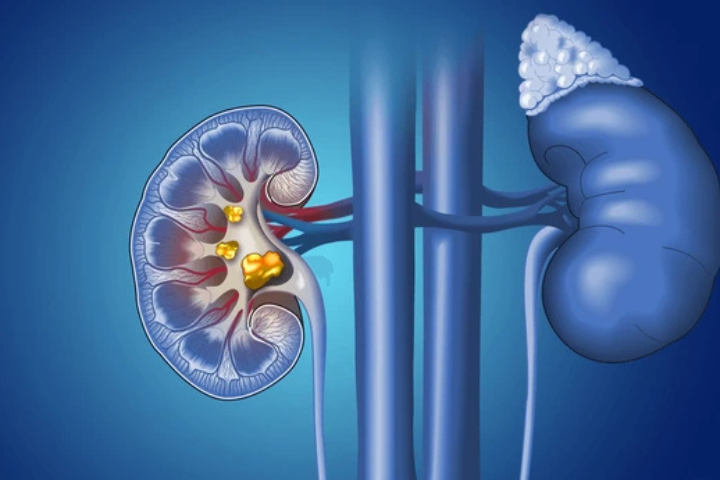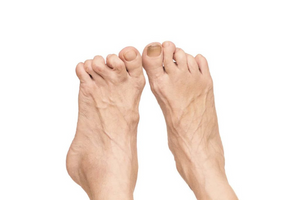Kidney stones are a common yet painful condition affecting many people worldwide. These hard mineral and salt deposits form inside the kidneys and can cause severe discomfort while passing through the urinary tract. The good news is that kidney stones can be managed and prevented with the right lifestyle choices and natural remedies.
What Are Kidney Stones?
Kidney stones are solid masses made of minerals like calcium, oxalate, and uric acid. They vary in size, from as small as a grain of sand to as large as a golf ball. When a stone moves through the urinary tract, it can cause sharp pain and other symptoms.
What Causes Kidney Stones?
Several factors contribute to the formation of kidney stones, including:
1. Dehydration – Not drinking enough water leads to concentrated urine, allowing minerals to crystallize and form stones.
2. High Oxalate Diet – Foods rich in oxalates (like spinach, nuts, and chocolate) can contribute to stone formation.
3. High Salt Intake – Too much salt increases calcium levels in urine, leading to stone development.
4. Excessive Animal Protein – A diet high in red meat and seafood raises uric acid levels, which can form stones.
5. Obesity and Sedentary Lifestyle – Being overweight increases the risk of kidney stone formation.
6. Genetics and Medical Conditions – A family history of kidney stones or conditions like hyperparathyroidism can increase the risk.
Symptoms of Kidney Stones
Kidney stones may not cause symptoms until they start moving. Common symptoms include: Severe pain in the lower back or side
-
Pain while urinating
-
Frequent urge to urinate
-
Cloudy or foul-smelling urine
-
Blood in the urine (pink, red, or brown color)
-
Nausea or vomiting
Natural Remedies for Kidney Stones
Many natural remedies can help prevent and manage kidney stones without the need for medical intervention.
1. Drink Plenty of Water
Staying hydrated is the best way to prevent kidney stones. Aim for at least 3-4 liters of water
daily to flush out toxins and prevent mineral buildup.
2. Lemon Juice
Lemons contain citrate, which helps break down kidney stones and prevents them from forming. Drinking warm lemon water in the morning can be beneficial.
3. Coconut Water
Coconut water helps flush out toxins and prevents stone formation by reducing the crystallization of minerals in the kidneys.
4. Tulsi (Holy Basil) Tea
Tulsi acts as a natural detoxifier and helps maintain kidney health. Drinking tulsi tea daily can aid in stone prevention.
5. Apple Cider Vinegar
Apple cider vinegar contains acetic acid, which helps dissolve kidney stones. Mixing one tablespoon in a glass of water and drinking it before meals can aid in breaking down stones.
6. Barley Water
Barley water is a traditional remedy for kidney stones. It acts as a natural diuretic, helping to remove excess minerals and prevent stone formation.
7. Limit Oxalate-Rich Foods
Reduce the intake of spinach, nuts, tea, chocolate, and beetroot, as they are high in oxalates, which can contribute to stone formation.
8. Reduce Salt and Sugar Intake
A diet high in salt and sugar increases calcium buildup in the urine, leading to stones. Cut back on processed foods and sugary drinks.
Stomelt Syrup
At Raj Herbals, we offer Stomelt Syrup,an Ayurvedic formulation designed to support kidney health and manage kidney stones, it helps dissolve and eliminate kidney stones, alleviates pain during micturition, and prevents stone recurrence. This syrup also soothes the urinary tract, reduces inflammation, and aids in preventing UTIs. Stomelt Syrup is ideal for individuals dealing with kidney stones, recurrent UTIs, or burning micturition.
When to See a Doctor?
If you experience severe pain, fever, difficulty urinating, or blood in your urine, seek medical attention immediately. Some large kidney stones may require medical treatment or surgical removal.
Conclusion
Kidney stones can be painful, but they are preventable with simple lifestyle changes. Drinking plenty of water, following a balanced diet, and using natural remedies can help keep your kidneys healthy. If you’ve had kidney stones before, adopting these habits can reduce the risk of recurrence.






